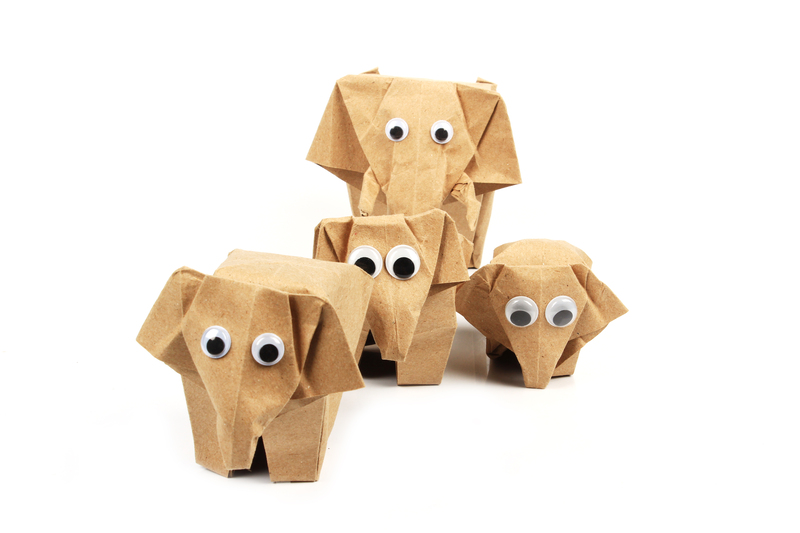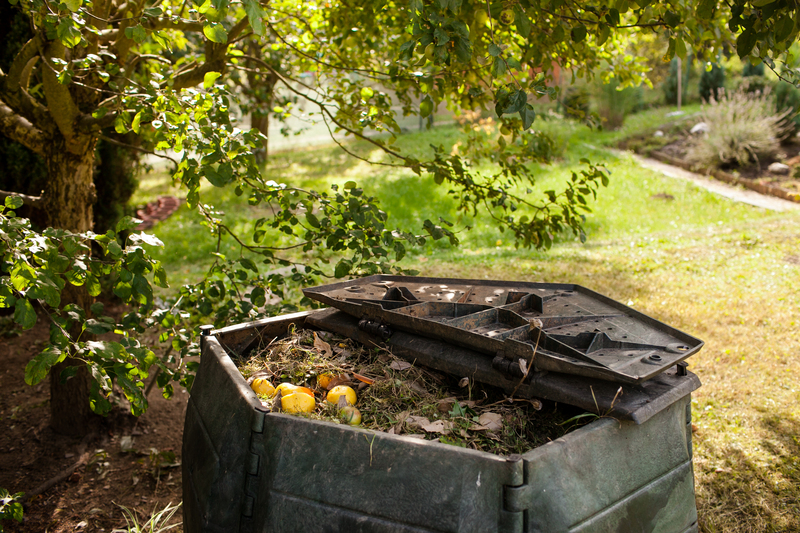Innovative Ways to Cut Down on Household Waste
Are you looking for new, creative ways to minimize the waste your household produces? With global waste production on the rise, it's more important than ever to find fresh solutions for waste management at home. This detailed guide will walk you through innovative strategies to not only cut back on household waste, but also to make your everyday living more eco-friendly and efficient.
Why Cutting Down on Household Waste Matters
Reducing household waste is crucial for protecting the environment, conserving natural resources, and minimizing the growing problem of overflowing landfills. Every year, millions of tons of waste end up in landfills, emitting harmful greenhouse gases and polluting ecosystems. Innovative waste-reduction habits not only make your home greener, but can also save you money and inspire others to follow your lead.

Simple Yet Effective Ways to Cut Back on Household Waste
Embrace the Zero-Waste Mindset
- Adopt a zero-waste approach by prioritizing reusable, compostable, or recyclable items.
- Rethink your daily habits--strive to buy less, reuse items, and repurpose materials whenever possible.
- Evaluate and declutter your belongings, donating or selling what you no longer need to extend their useful life.
Rethink Food Waste
Did you know that up to one-third of food produced globally is wasted each year? Cutting down on food waste is a key part of reducing household rubbish. Here are some innovative ideas:
- Plan meals and make shopping lists to avoid overbuying perishables.
- Learn creative ways to use leftovers, such as making soups, salads, or casseroles.
- Compost food scraps to return nutrients to the soil and reduce methane emissions from landfills.
- Store food properly--invest in airtight containers, use beeswax wraps, and label items with use-by dates.
- Regrow vegetables from kitchen scraps--such as green onions, celery, or lettuce.
Technological and Smart Solutions to Reduce Household Waste
Use Smart Appliances and Gadgets
Technology can offer innovative solutions for minimizing domestic waste:
- Invest in a smart refrigerator that notifies you of expiring foods or helps manage your grocery inventory.
- Use composting machines that break down organic waste quickly and efficiently inside your home.
- Try a digital shopping assistant app that helps reduce impulse purchases and track food consumption.
- Install motion sensor faucets and smart dishwashers to use water more efficiently, minimizing the waste associated with cooking and cleaning.
Explore Waste Management Apps
Many apps help households reduce waste by connecting users to local food-sharing programs, recycling centers, and upcycling communities. Some popular options include:
- Too Good To Go -- connects with local restaurants and stores to save unsold food.
- Olio -- shares surplus food with neighbors instead of throwing it away.
- iRecycle -- helps you find the nearest recycling location for difficult-to-recycle items.
Creative Reuse and Repurposing at Home
Upcycle Everyday Objects
Upcycling is an inventive way to transform waste into useful household items or decor. Check out these ideas:
- Turn glass jars into storage containers, vases, or lanterns.
- Use old t-shirts as cleaning rags or transform them into tote bags.
- Create furniture from wooden pallets or repurpose old drawers as shelves.
- Make art or crafts from scrap paper, bottle caps, or fabric remnants.
Establish a Home Recycling Station
Sorting waste at home makes recycling easier and more effective. Set up a well-labeled recycling station to separate materials like paper, plastics, glass, and metals. Educate family members, especially children, about what can be recycled and how to clean items before placing them in bins.
Adopt Composting as a Key Waste Reduction Method
Why Compost?
Composting converts kitchen and yard waste into fertile compost that can nurture your garden. Not only does this diminish household refuse, but it also enriches soil, supports plant growth, and reduces reliance on chemical fertilizers. Composting is effective for food scraps, coffee grounds, eggshells, and yard waste.
Different Composting Styles
- Traditional composting--An outdoor compost bin works well if you have a yard.
- Vermicomposting--Using worms to break down kitchen scraps indoors or in small outdoor bins.
- Bokashi composting--A fermentation method suitable for small spaces and all food types (even meat and dairy).
Choose the method that best fits your household size and lifestyle to see a dramatic reduction in organic waste going to the landfill.
Innovative Ways to Cut Down on Plastic Waste
Eliminate Single-Use Plastics
Single-use plastics are one of the biggest contributors to pollution and household garbage. The following innovative replacements can help:
- Switch to reusable shopping bags made of canvas or recycled materials.
- Use stainless steel or glass water bottles instead of disposable plastic bottles.
- Opt for composable cutlery and plates for events and picnics.
- Buy bulk items to cut down on disposable packaging--bring your own containers to zero-waste stores when possible.
- Purchase products with minimal or sustainable packaging, or choose package-free options.
DIY Home Cleaning and Beauty Products
Most conventional cleaners and beauty products come in plastic packaging. Making your own can dramatically reduce household waste:
- Create all-purpose cleaner from vinegar, baking soda and essential oils, stored in a recycled glass spray bottle.
- Mix your own laundry detergent and store in large reusable containers.
- Make simple beauty products such as sugar scrubs, face masks, and deodorants in refillable jars.
Maximize Reuse and Recycling
Take Advantage of Local Recycling Programs
Every city has unique recycling capabilities. Research your local guidelines to ensure you're not sending recyclable items to landfill, and look out for opportunities to recycle electronics, batteries, and other special materials.
Host a Community Swap or Repair Party
Encourage friends and neighbors to bring items they no longer need for swapping or repairing. Such events keep goods in use longer and reduce the demand for new products. Some ideas:
- Toy and clothing swaps for children and adults.
- Repair cafes where volunteers help fix electronics or appliances.
- Book exchanges or community lending libraries for tools and equipment.
Go Digital to Minimize Paper Waste
- Switch to online billing and digital statements to eliminate paper mail.
- Use e-books and online subscriptions instead of buying physical newspapers, books, and magazines.
- Set up a digital note-taking system to minimize sticky notes and notepads around the house.
Tip: For unavoidable paper waste, shred and compost it, or use it as packing material for shipping items.
Educational and Lifestyle Approaches to Reducing Home Waste
Teach Kids About Waste Reduction
Fostering a culture of waste reduction from a young age can have lasting benefits. Involve children in sorting recyclables, composting, and upcycling projects. Make it fun by turning waste reduction into games or challenges, and reward creative efforts to repurpose items.
Support Eco-Friendly Brands and Practices
Your buying power matters! Support brands that prioritize minimal or reusable packaging and use recycled materials in their products. Look for certifications like Certified B Corporation, Fair Trade, and USDA Organic to align your purchases with sustainable practices. Let companies know you value sustainable packaging and circular economy initiatives.

Frequently Asked Questions on Reducing Household Waste
What is the most effective way to reduce household waste?
The most effective way is embracing a reduce, reuse, recycle strategy--buying only what is necessary, reusing items wherever possible, and recycling correctly. Composting, upcycling, and avoiding single-use plastics also go a long way.
How can I encourage my family to waste less at home?
Involve everyone in decision-making and make waste reduction part of your family routine. Lead by example by packing zero-waste lunches, using reusable items, and engaging in upcycling projects together.
Is it expensive to live a zero-waste lifestyle?
While some investments (like reusable containers) have upfront costs, many zero-waste habits save money over time. Buying bulk, repairing items, and making your own cleaning products are often cheaper than disposables.
What household item is the biggest source of waste?
Food waste, packaging (especially plastics), and paper products are often the biggest contributors. Addressing these can have the greatest impact on reducing your home's overall waste footprint.
Conclusion: Start Innovating Today to Cut Down on Household Waste
Innovative ways to reduce household waste are more plentiful and accessible than ever. By embracing a zero-waste worldview, leveraging technology, maximizing reuse, and making new family habits, every household can meaningfully cut back on waste production. Adopt a few new practices at a time, and celebrate progress over perfection! Every small step counts in building a greener, cleaner, and more sustainable home for the future.
Ready to start your journey? Share this guide and inspire others in your community to embrace innovative waste reduction today.